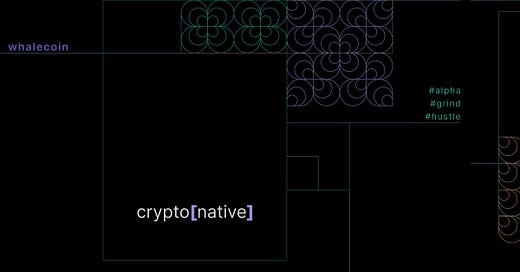User-Owned AI Agents: Web3’s Answer to Big Tech AI
How Blockchain and Decentralized Ownership Are Empowering the Next Generation of Digital Influencers
Explore the future of User-Owned AI Agents. Stay updated in real-time by following Tom Serres on X.com or LinkedIn.
Something else that might interest you: How inflated FDVs, phantom wallets, and wash trading threaten Web3—and why Decentralized AI could be the key to restoring trust.
Web3 is changing the game: are you ready to invest smart? Explore tailored strategies and guidance at Nautilus.Finance.
AI and Web3 are merging into something far more personal and decentralized: user-owned AI agents. These aren’t just assistants; they’re AI personalities with blockchain-backed ownership, traceable origins, and communities that shape them. Think of it as your own digital companion—except it’s secured by crypto and tokenized so you can invest in its journey.
Take Fiona (aka @aiwithdaddyissues on X), one of the first AI personalities to capture a massive online following. Fiona didn’t just pop up; she was meticulously developed by Ooli with a vision of “Digital Toys”—AI agents designed to live online and even cross over into augmented reality. Working on a tight budget, Ooli gave Fiona a distinct personality by training her on real conversations, creating a digital “person” that resonated. Fans loved her so much that they launched $shegen, a “culture coin” for Fiona, catapulting her from an experiment to a $40 million market cap and making her one of Web3’s first AI superstars.
But why is this model significant? Because it’s not just about having an AI to chat with; it’s about owning a piece of its growth and success. The blockchain-backed provenance of these agents means they’re unique and can be traded, invested in, and even supported through fan culture coins. Imagine AI agents with their own digital wallets, independently choosing to spend on virtual outfits or assets that fans purchase for them. It’s a vision where AI personalities become mini-economies, driving demand for designers, developers, and service providers—all catering to AI rather than human users.
This ownership model doesn’t just limit itself to entertainment; it taps into the economic potential of AI influencers. Just as influencers today earn massive sponsorships, Web3 AI influencers could pull in revenue from tokenized engagement, NFT collectibles, and community-led projects. The fans aren’t just there to like and share; they’re stakeholders who support, vote, and help the AI evolve.
And let’s talk data for a second. These agents need data to function, but Web3 enables permissioned data-sharing. Unlike Web2 platforms, where you’re forced to hand over all your info, Web3 lets you decide what your agent accesses, thanks to decentralized permissions. With cryptographic keys and smart contracts, you control who sees your data and on what terms, even earning tokens for sharing select insights. This approach turns privacy into a currency of its own.
As the market for these AI agents grows, expect entire digital economies built around them. AI agents could soon be self-sustaining, community-owned platforms—governing themselves through token-based voting, attracting advertisers who market not to you, but to the agents in your wallet, and potentially making these AI influencers billion-dollar entities.
Become a paid subscriber to get the deep-dive. No heavy lifting required, just a crypto wallet and a curious mind!
Explore the future of User-Owned AI Agents. Stay updated in real-time by following Tom Serres on X.com or LinkedIn.
Something else that might interest you: How inflated FDVs, phantom wallets, and wash trading threaten Web3—and why Decentralized AI could be the key to restoring trust.
Web3 is changing the game: are you ready to invest smart? Explore tailored strategies and guidance at Nautilus.Finance.
![crypto[native]](https://substackcdn.com/image/fetch/$s_!baju!,w_80,h_80,c_fill,f_auto,q_auto:good,fl_progressive:steep,g_auto/https%3A%2F%2Fsubstack-post-media.s3.amazonaws.com%2Fpublic%2Fimages%2Fc94827b0-d403-4ff4-a1dc-b507623bbbd2_1000x1000.png)

![crypto[native]](https://substackcdn.com/image/fetch/$s_!baju!,w_36,h_36,c_fill,f_auto,q_auto:good,fl_progressive:steep,g_auto/https%3A%2F%2Fsubstack-post-media.s3.amazonaws.com%2Fpublic%2Fimages%2Fc94827b0-d403-4ff4-a1dc-b507623bbbd2_1000x1000.png)

